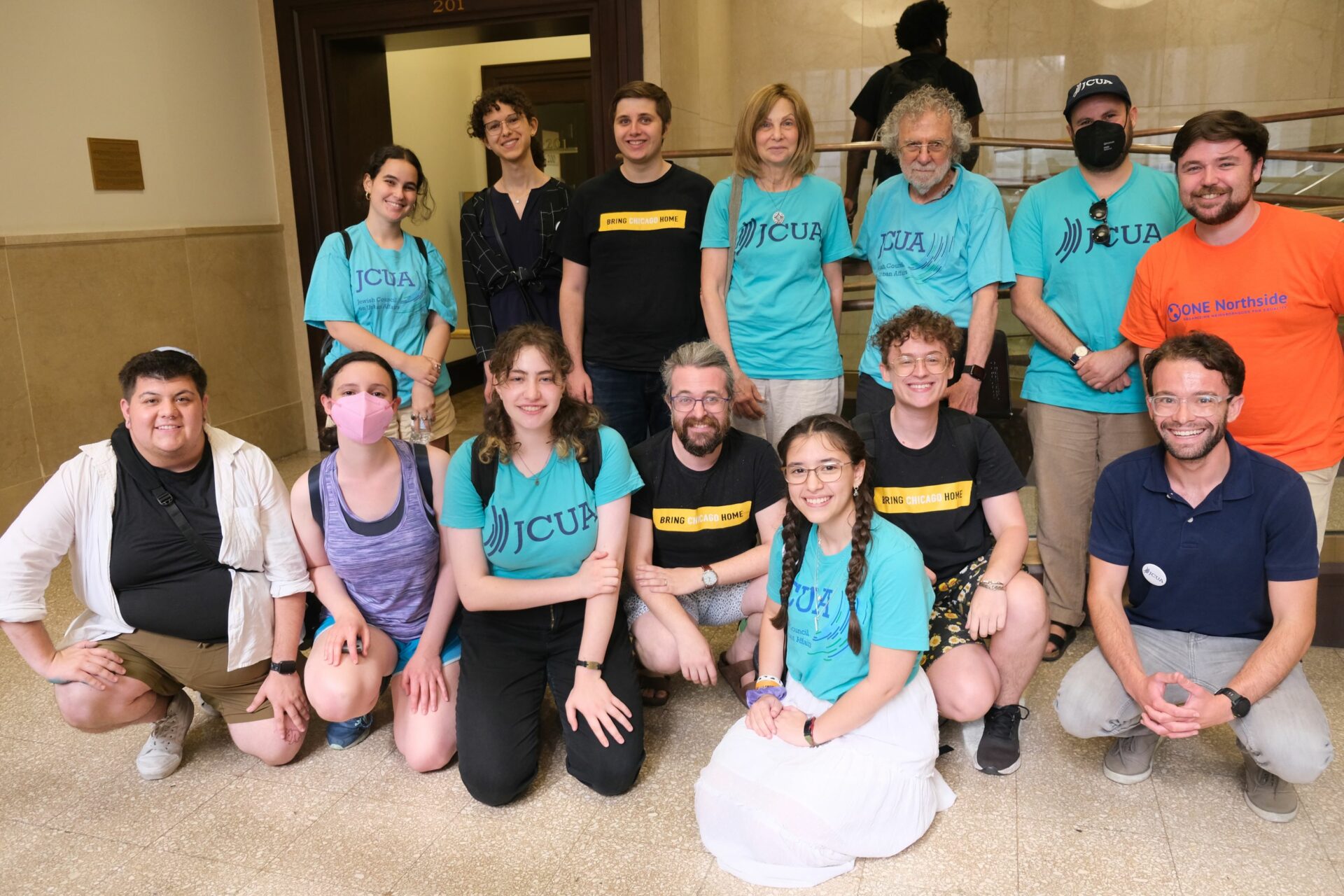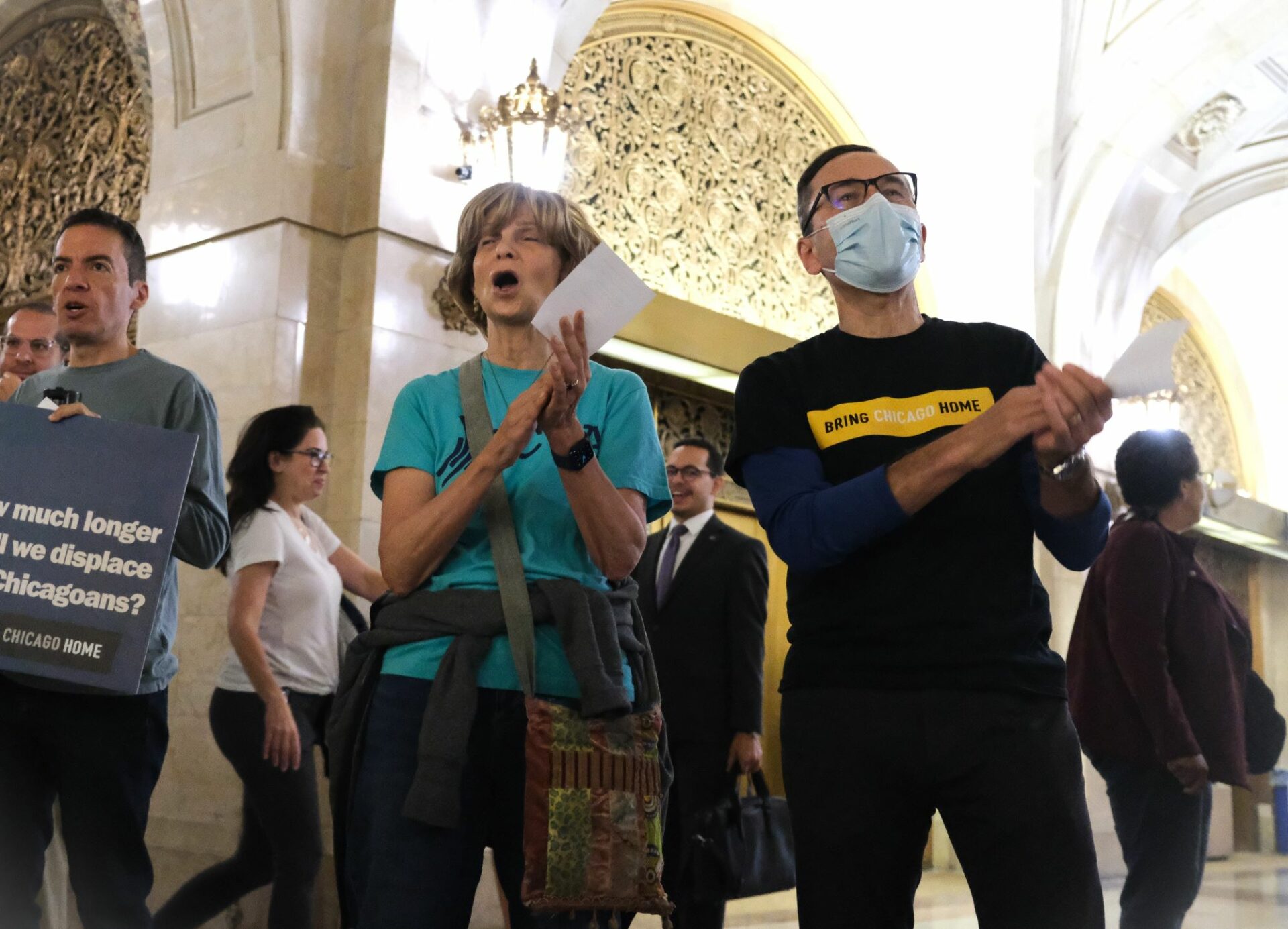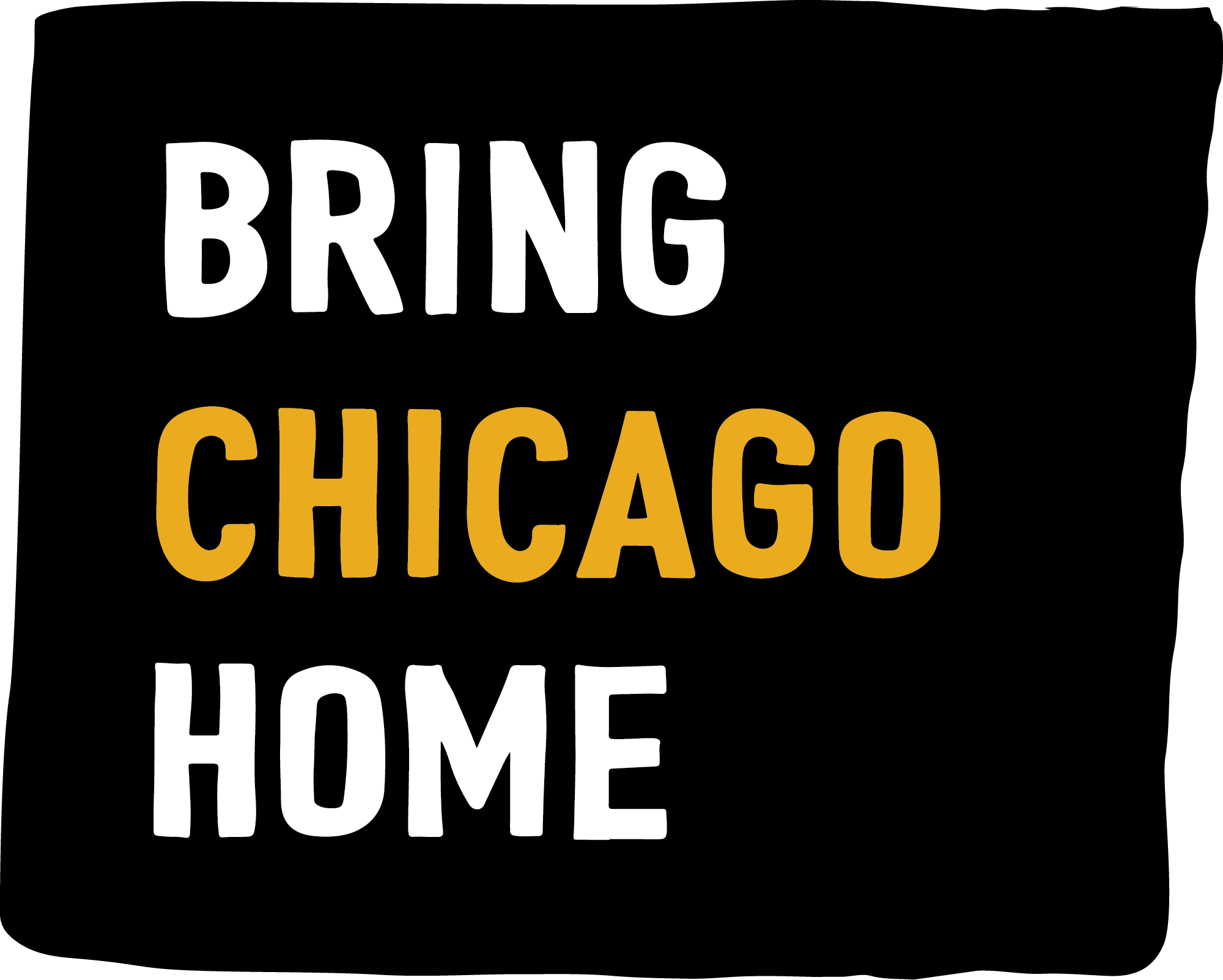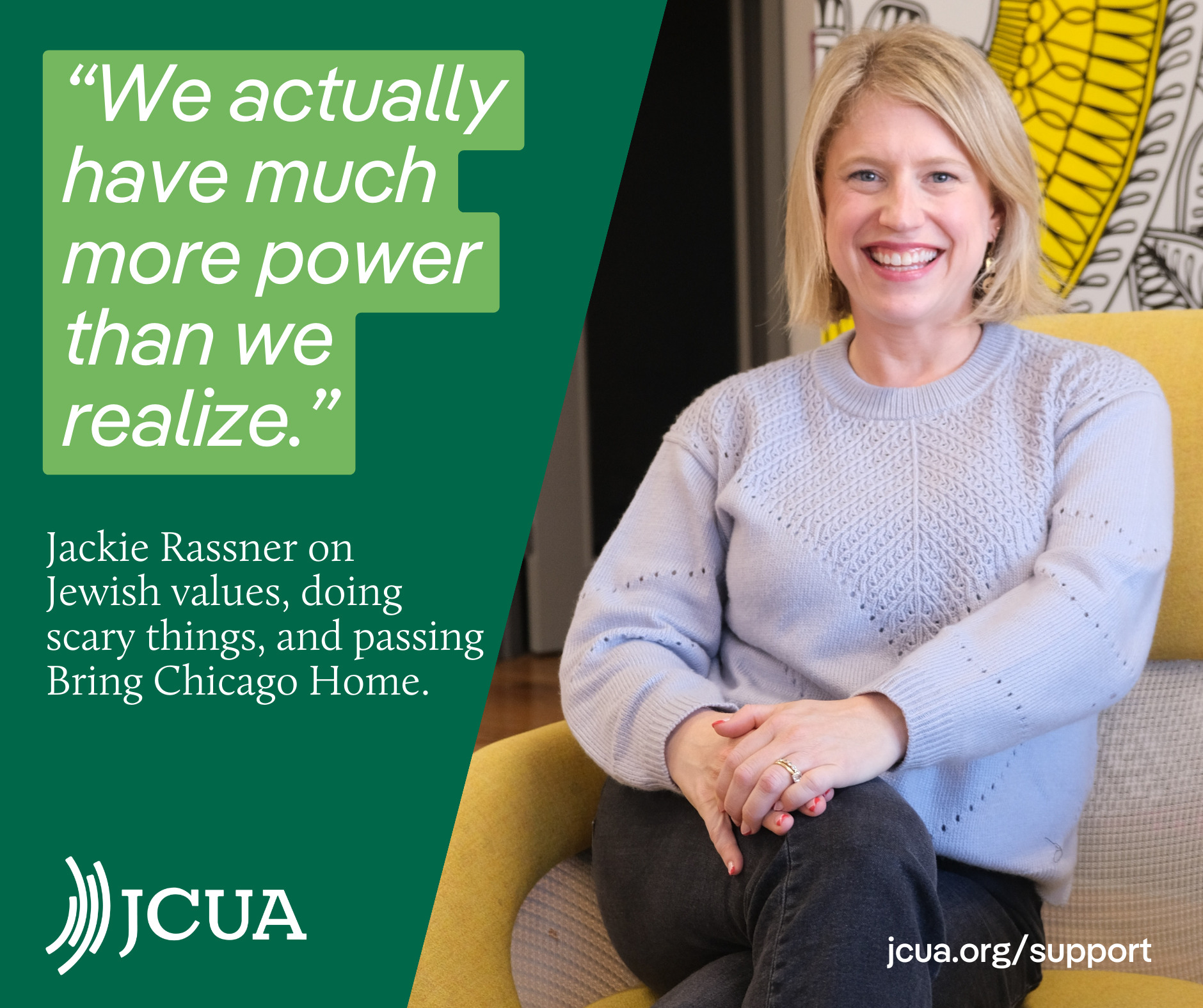Bring Chicago Home takes City Council
On Thursday, July 27, JCUA and our partners in the Bring Chicago Home coalition gathered at City Hall for a rally and Subject Matter Hearing before the Housing & Real Estate Committee. This was an important step in the process of getting our ordinance on the ballot next year, when voters will decide whether the city should raise the Real Estate Transfer Tax and generate millions for homelessness services.
Alongside housing experts, advocates, and directly impacted individuals, JCUA leaders were in attendance, testifying about why we must pass Bring Chicago Home and support Chicago’s 65,000 homeless neighbors.
The subject matter hearing occurred on the same day as Tisha b’Av, a Jewish holiday in which we mourn over the destruction of our temples, the scattering of our people, and other tragedies that befell our community across history. During the rally, JCUA youth organizer Leela Wittenberg Trubowitz connected the homelessness crisis to Tisha b’Av: “When we look at our city today, we see 65,000 Chicagoans living on the streets. These people are our neighbors, our friends, our flesh and blood. Yet when we call for our city’s support, those in power blame the victims of housing insecurity for the hardships they have faced as a result of Chicago’s own failed housing and economic systems. Sinat chinam, I say to you, causeless hatred!” Watch Leela’s full remarks.
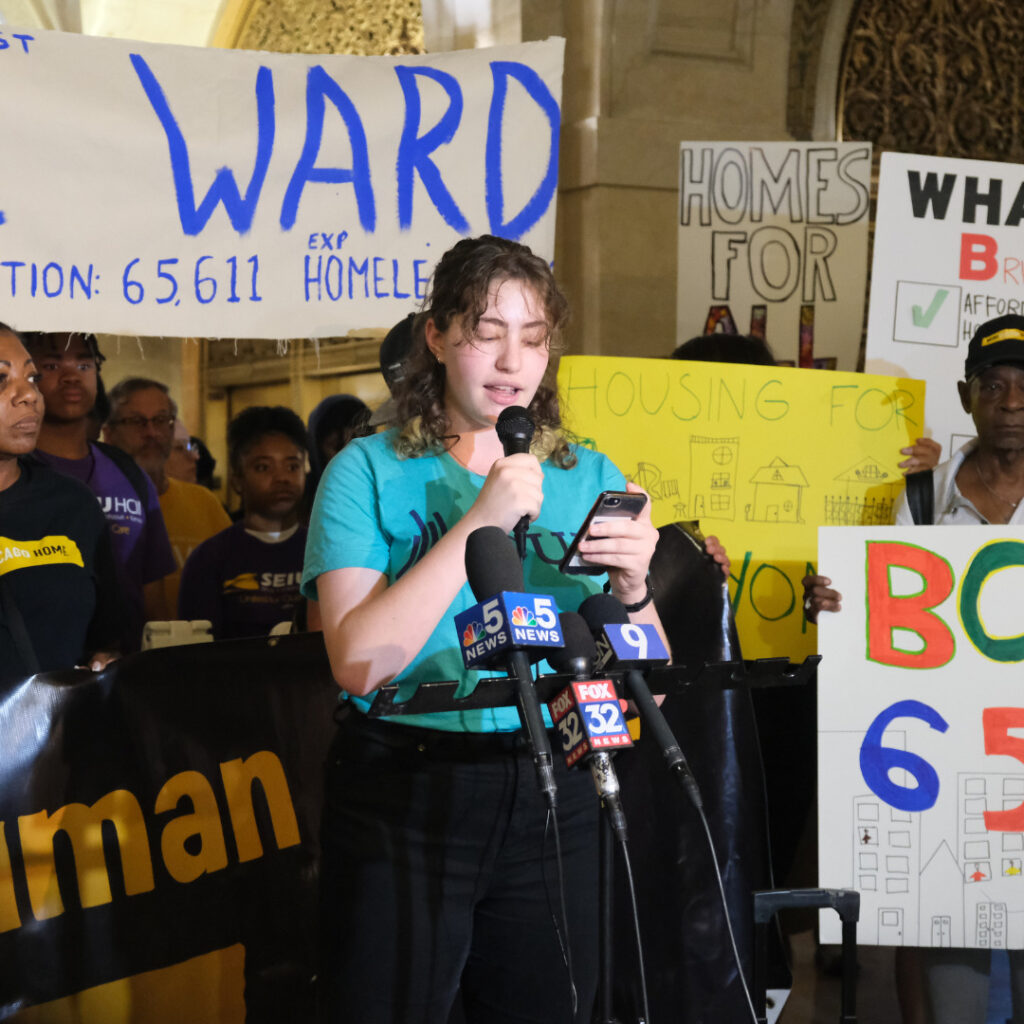
During the public comment section of the hearing, Board member, Housing and Economic Justice committee member, and family physician Steve Rothschild said: “As a physician, my patients sometimes misinterpret the SYMPTOMS of an illness with the illness itself. That happens with persons experiencing homelessness too. Too many people see a person living on the street, or in the library, or on the CTA and are quick to misdiagnose the root cause of the problem as mental illness or drug dependency… and they just want the police to take the person away, and just get them out of sight. I’m a physician, and my prescription is simple: Put Bring Chicago Home on the ballot and create a path towards funding Permanent Supportive Housing for everyone who needs it.”
The City Council hearing was packed with members of our coalition in support of Bring Chicago Home. Because of limited time, many JCUA members who prepared public comment were not able to speak. We are proud to share some of their words here:
Elli Krandel: “As a Jew who is driven and inspired by our history and heritage as a wandering people, as a queer person who knows that queer and trans folks are twice as likely as our cis straight counterparts to experience homelessness, and as a person who has dedicated my career to supporting others and their wellbeing, I am strongly in favor of Bring Chicago Home. I own a home that would have been taxed at the higher rate proposed in Bring Chicago Home, and I wish it had been. It is an immense privilege to have a safe home to go back to every night, and we all need to do everything in our power to make that a reality for every Chicagoan.”
Andy Rapoport: “My background is in biology, policy, and public health. I also volunteer with JCUA: a progressive Jewish advocacy organization doing work in community safety, immigration, and economic development and housing. Bring Chicago Home sets up a framework – a sustainable & dedicated funding stream – to ensure that the organizations & people that do this work, that understand the needs and can navigate the systems, can be funded in the way they deserve and require. We can provide permanent supportive housing to those who need it.”
Jackie Rassner: “I got involved in finding a long term solution for homelessness after seeing the world through the eyes of my children… This RETT increase will likely impact me and my family- it’s realistic to think that we will someday purchase a home over a million dollars. Some here will say that’s voting against my interests. I think it’s intentionally voting with my and my children’s interests in mind. It is within their best interests to grow up in a Chicago that takes care of all of its citizens. A Chicago that ensures all children have the benefits that mine take for granted, a safe place to sleep at night, a place to shower and be clean, the consistency and routine that comes from having a home to call their own.”
Jada Potter: “What makes BCH special is that it does not only throw money at temporary solutions, like homelessness shelters. As someone who has volunteered in shelters I know that they are important, but also not nearly enough. At one shelter I helped at, a lottery system would determine who could stay and who would have to sleep outside or on a friend’s couch. And once people there found housing, there was no system put in place to ensure that they would remain housed. BCH is different, in that it takes a comprehensive approach to housing, focusing on permanent solutions and wealth building, understanding that homelessness is not an inevitability, but a socially engineered problem that can be fixed.“
